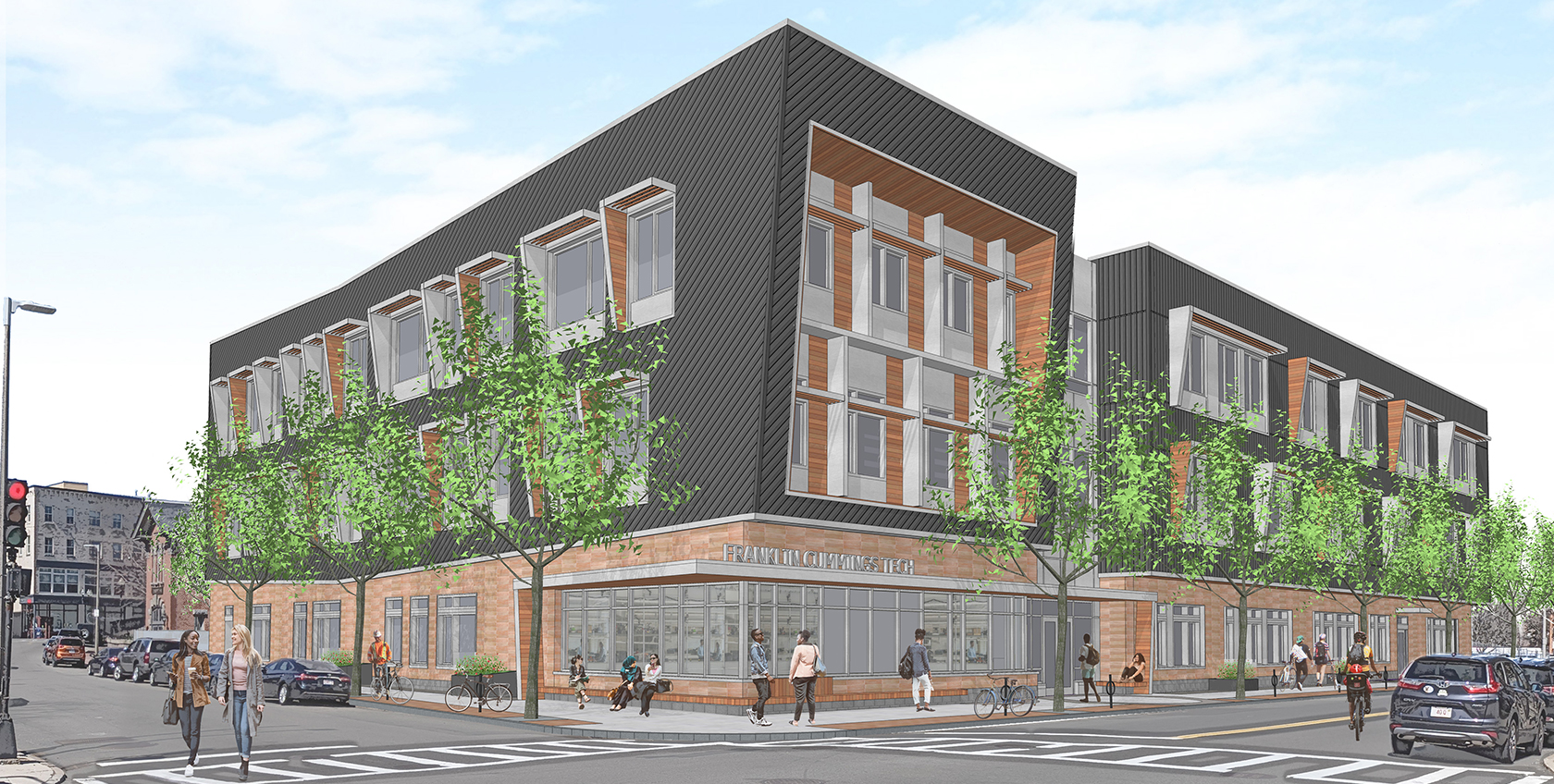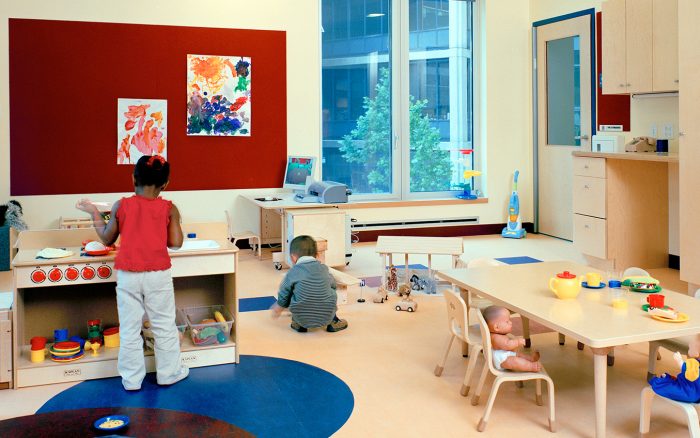Designing for Exceptional Technical Education
With a growing student population and ever-expanding educational programs, Franklin Cummings Tech needed help creating an innovative new facility to meet the varied and complex requirements of 21st-century technical education, including green economy technologies.
We were thrilled to take on the challenge! In close collaboration with many stakeholders, we engaged in an extensive strategic planning process, including current and future needs assessments, site selection, in-depth visioning and space programming, and a cost analysis. The resulting design provides a state-of-the-art facility that is purpose-built and will serve as the anchor institution in a revitalized Nubian Square in Roxbury.
Location
Boston, MA
Client
Benjamin Franklin Cummings Institute of Technology
Size / Area
68,000 SF
Certifications
LEED Gold (Target)
Students
600 in person
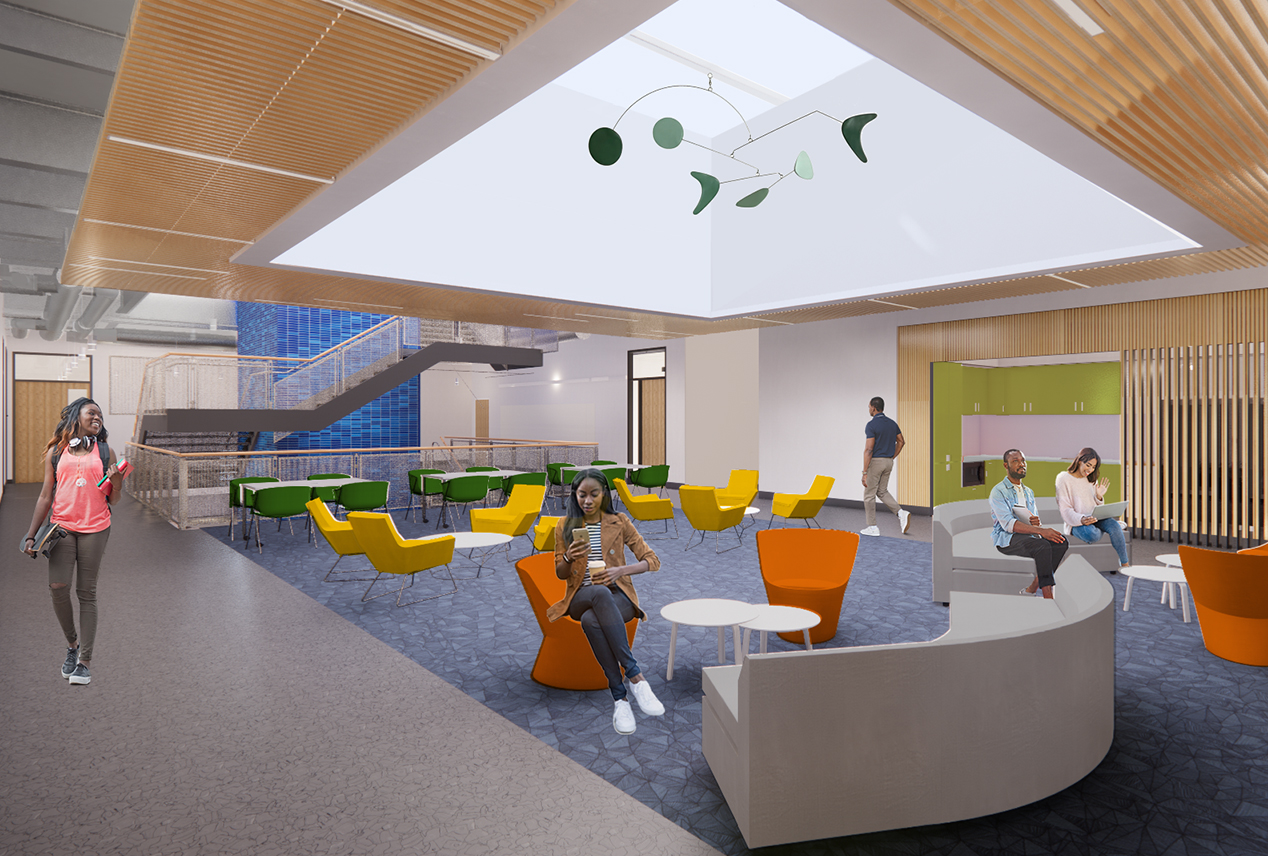
Transformative Spaces Inspire and Engage
Students will be engaged in technology-rich educational spaces, flexible study commons, and student lounge areas that gather students in different educational strands and can adapt to the college’s evolving educational programs. The three-story building will support ten academic departments and include:
- Shared general education classrooms
- Technical labs designed specifically to each department’s needs
- Conference, meeting, and huddle rooms
- Multiple study and gathering spots
- Administration and other offices
- A rooftop learning lab
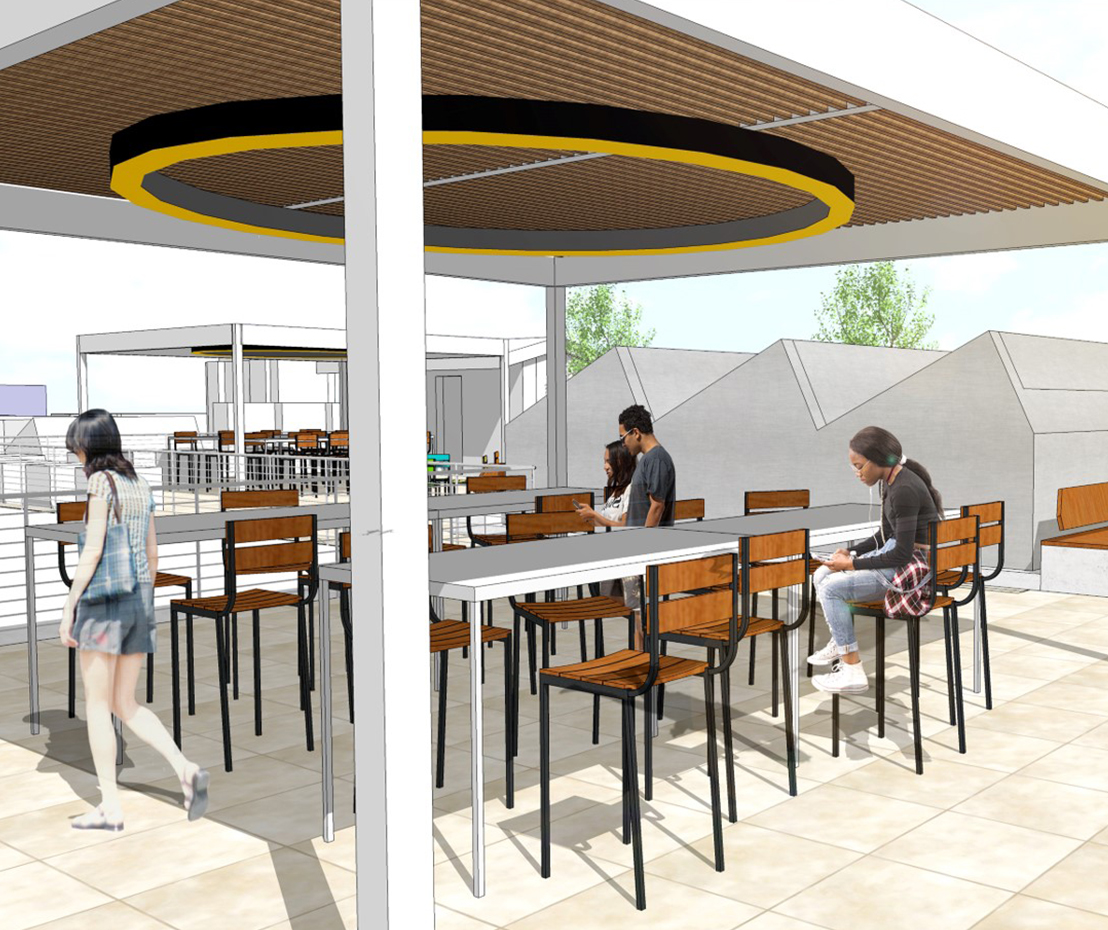
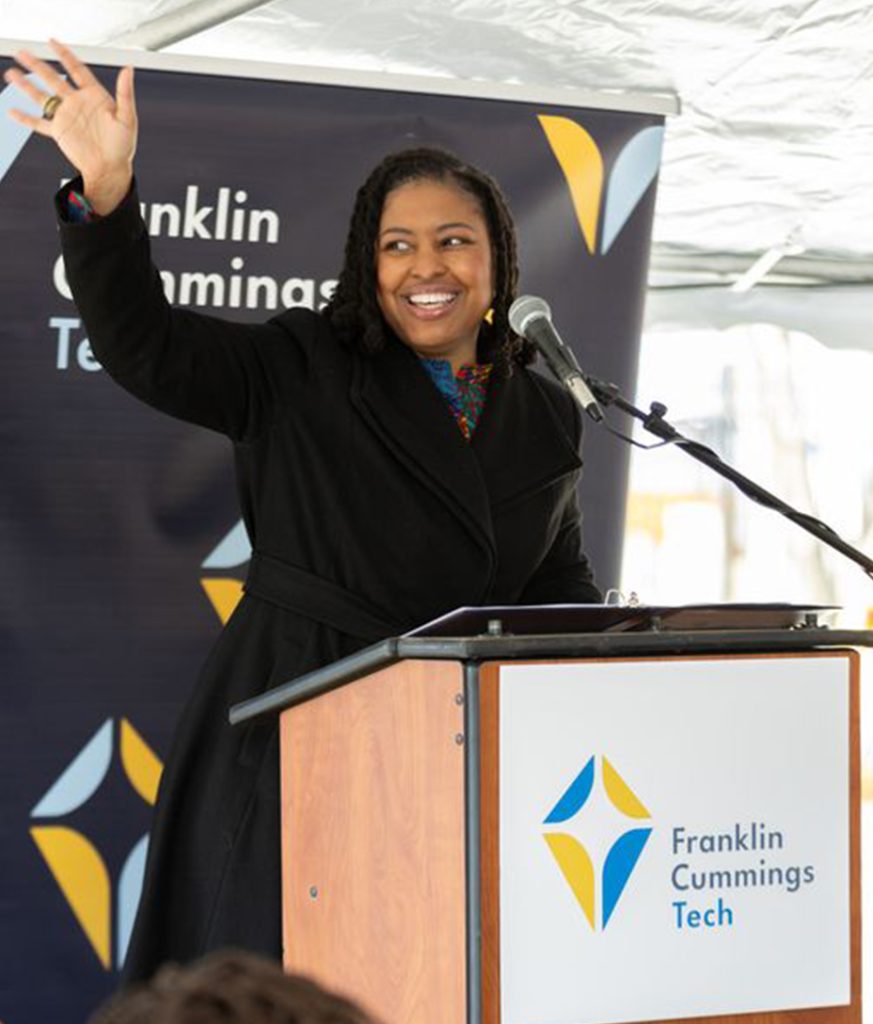
“We are thrilled to have the opportunity to educate tomorrow’s technical workforce at our Nubian Square campus, thanks to partners like Studio G.”
– Dr. Aisha Francis, FC TECH President & CEO
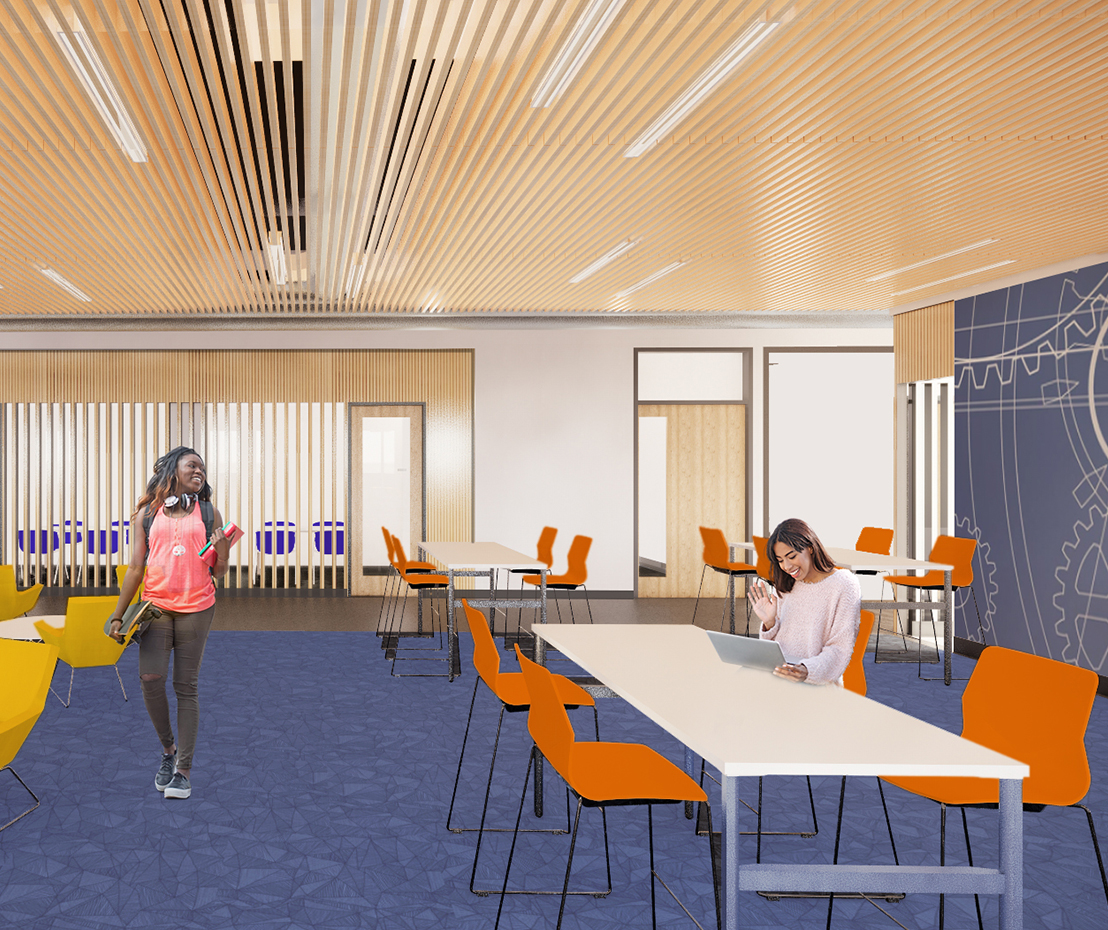
Inviting and Inclusive New Campus
Committed to diversity, FC Tech welcomes students of all races and ethnicities, genders, and socioeconomic backgrounds into the inclusive and universally accessible building. The pedestrian-friendly campus opens to its neighborhood with an expansive storefront on the first floor, which displays FC Tech’s mission and educational programs to neighborhood residents. The first-floor Engineering Technology Robotics lab, visible at the corner to passersby, will inspire potential students. The access drive to the Automotive labs doubles as a plaza and a social space with a sitting wall, pergola, and outdoor furnishings. A working automotive repair garage and the on-site optical shop staffed by FC Tech’s students will be open to the public, and their services will build connections to the surrounding neighborhood.
Building as a Teaching Tool
A unique goal of the design was to make the building a teaching tool. Exposed structures and mechanical systems help teach students about HVAC, practical electricity, and electrical engineering. Students enrolled in the Center for Energy Efficiency and the Trades programs will have hands-on learning opportunities in the rooftop learning lab that supports the building’s HVAC systems and photovoltaic (solar electric) panels, preparing students for jobs in the green economy. As construction on the new facility progresses, students from many of FC Tech’s programs will also have a chance to see their classroom learning in action as they witness the development of their campus firsthand.

Sustainable, Resilient and Healthy
With its focus on technology and engineering education, FC Tech is committed to creating a deeply sustainable building. Early in the process, the full team engaged in a robust workshop that identified energy efficiency and sustainability goals:
- Reduce energy use
- Reduce carbon use to reduce CO2 emissions
- Reduce water use
- Support and enhance the health and wellness of occupants
- Build resilience into the site and the building to adapt to climate change
The new building includes an airtight enclosure that uses passive design strategies such as solar orientation to optimize daylighting and shading and natural ventilation to reduce energy use. The high-efficiency mechanical systems include an all-electric variable refrigerant flow system with heat recovery ventilation and a high-efficiency electric domestic hot water system, thus using no fossil fuels. LED lighting and daylighting control systems, good acoustics, and healthy materials deliver a healthy environment for learning and work. The project targets LEED Gold certification.
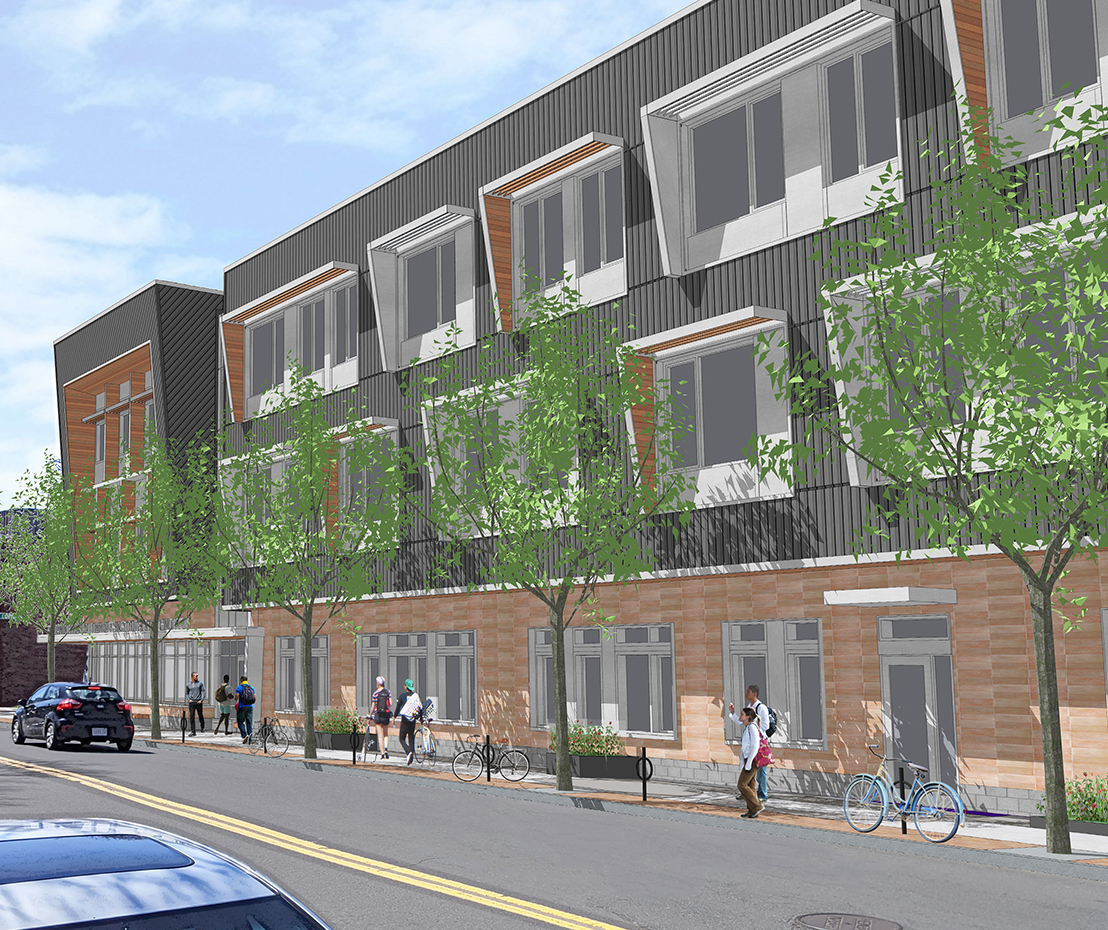
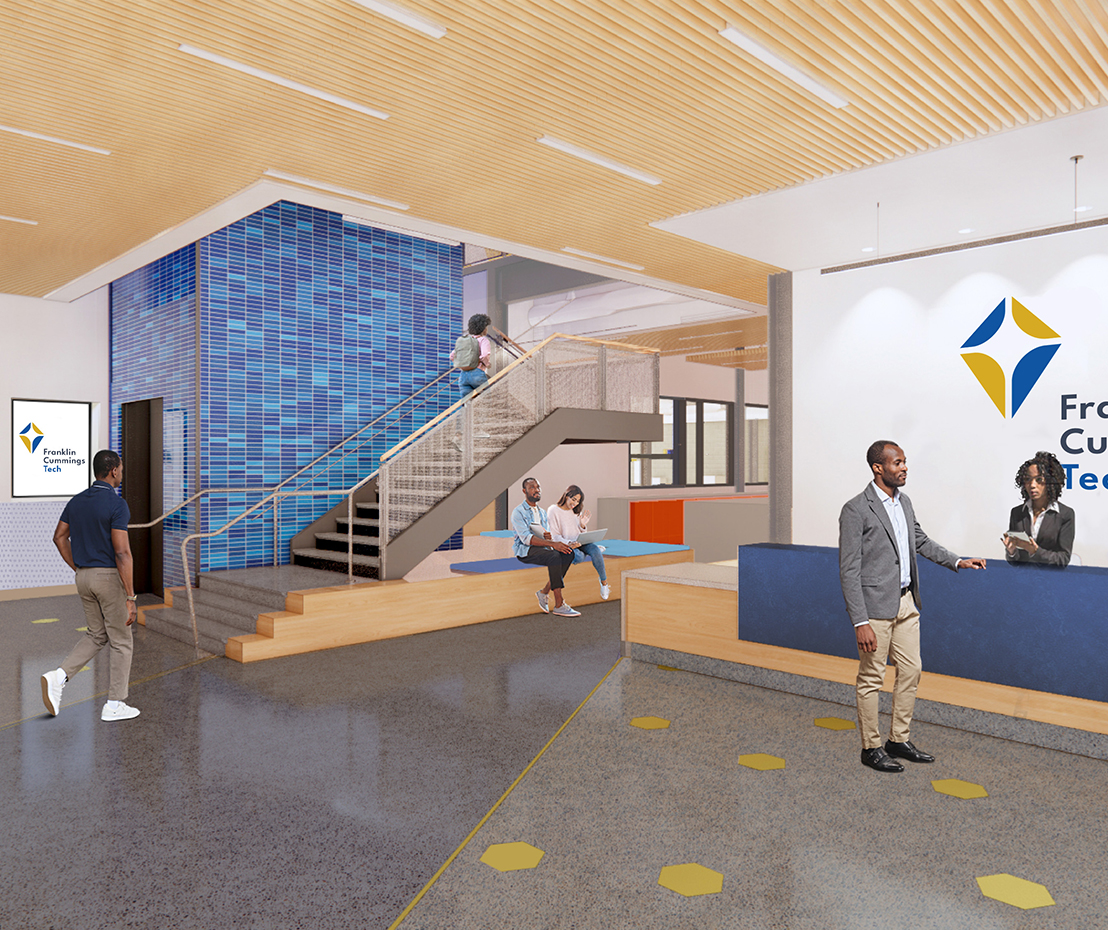
A Cost-Effective Design For a Bright Future
Using integrated, cost-effective design strategies we were able to meet the college’s financial objectives and advance its core values of diversity, equity, inclusion, racial justice, and sustainability in a beautiful signature building that will accommodate future growth and contribute positively to the transforming Nubian Square neighborhood for decades to come.
